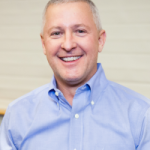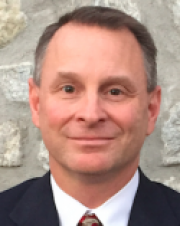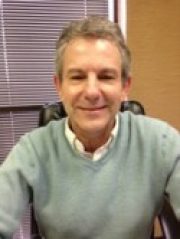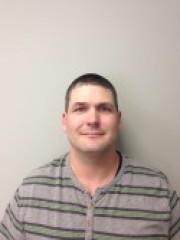Entrepreneur – Mentor, Roger Chasteen
This mentor describes himself as a serial entrepreneur. He has been involved in a variety of businesses including an office products company, a telecommunications company with 54 locations and 300 employees, FM and worldwide streaming radio stations, an auto dealership, commercial real estate, book publishing and recently oil and gas. His success has come from hard work and by living a conservative life style that allowed him to accumulate the capital he needed to start and grow his business ventures. While he is continuing to evaluate new business opportunities, he is also giving back by helping mentor young people interested in starting a new business. Roger is doing this through personal mentoring as well as was a part of a Shark Tank program similar in concept to the television show where students at a local university can present their ideas to a group of business people who help students by giving them advice and sometimes investing in their new business. This article will show you the basic principals Roger used to start and manage his own businesses and the kind of effort and dedication that made him successful. Because Roger started his businesses without relying on outside venture capital investors, his story is another good example of how you can start small and still build a large, successful organization.
Overview
 Roger grew up in a class family where his father worked for an oil field company and his relatives worked either as oil field workers, farmers and ranchers. He was one of the first who completed college. His family background was important to his success because it gave him a strong work ethic that has stayed with him throughout his life.
Roger grew up in a class family where his father worked for an oil field company and his relatives worked either as oil field workers, farmers and ranchers. He was one of the first who completed college. His family background was important to his success because it gave him a strong work ethic that has stayed with him throughout his life.
Roger was born with some health issues growing up that he eventually overcame. Roger turned to music and learned to play the piano. He began to learn about business when he was just twelve years old when he printed his own business cards and went out and got yard work to earn money. He also became a magician and entertainer in as he prepared for college. While attending college, he he worked a number of jobs including selling water purifiers door to door. Roger noticed when knocking on doors that people could not see him and were asking who was there before they opened the door. So he got the idea to also sell peepholes. He bought all they had a local hardware store and sold and installed the peepholes for twenty dollars while he was selling water purifiers door to door. He also worked at an electric utility from six in the evening to two in the morning while he was going to college to help pay his expenses. Roger started at OSU but ran out of money after the second year. However, he persisted and completed a degree in marketing and computer science at the University of Central Oklahoma.
When he began looking for a job after college, he first applied to be a FBI agent. But they were not hiring people with his background at the time so he applied to other companies including Xerox. Working for that company was a highly coveted job and over 600 people applied. Roger was one of the final three chosen out of all those applications. Xerox had a hiring freeze because of a slowdown in the general economy and he was told to stop calling them. The Xerox manager said he would call Roger when they started hiring again. But Roger did not give up. When the manager went to the parking lot the next day to get into his car, Roger was waiting for him. Roger told the manager he needed the job. The manager began to explain to him again about the hiring freeze. Roger noticed the manager had a pack of cigarettes in his pocket and Roger ask him if he could have the job if he was able to stick the cigarette through the middle of a quarter. The manager gave him a cigarette and a quarter. Roger used his skills as a magician and stuck the cigarette through the middle. This intrigued the manager and he took Roger back in the office to show some of the other people. They liked his enthusiasm, called Xerox headquarters and got an exemption to allow the local office to hire him. Roger did well in sales and was one of Xerox’s top producers.
After five years, Xerox offered him an agency program, which was similar to a franchise with an exclusive territory. He started out selling Xerox office equipment and then added pagers. He then decided to add cellular telephones, which were just starting to be introduced at the time and were then primarily being installed in automobiles. Xerox did not like the fact these additional products were being sold in the same store as their business products. So Roger started a new company and designed new stores for the pager and cell phone business. In two years that business became larger than the office equipment business. Roger continued to expand the communications company with new products and services. He ended up with fifty-four locations in 4 states with over three hundred employees and eventually sold all but three of these stores. The average age of the people working in these stores was only 24. (I think it would be interesting to talk about how you trained and motivated these young people. I would assume that many of them were on commission. Managing that many kids that age had to be a challenge). Roger also started, purchased and sold a numerous other companies including a security company in St. Louis, an auto dealership and a publishing company that he still owns today.
It is important to understand that Roger financed these ventures with money he had saved and some limited bank financing. Only one time did he bring in outside equity investors for one of his business ventures. To be able to accumulate capital, he and his wife lived in a 1,450 square foot house for fifteen years and continued to reinvest his excess cash flow in their businesses. While they have now bought a better home and spent some money on themselves, Roger and his wife continue to reinvest much of their money in new business ventures and to expand existing businesses. Recently when he was at a gas station with a new sports car, someone asked him how much the car cost. He told them that it cost 70 hours a week for fifteen years.
Because Roger saved his money, he had the resources to not only start and grow his existing businesses; he also had the ability to take advantage of opportunities that came along when other people were in financial distress. He has acquired a number of other businesses this way including three radio stations that he turned around and resold and most recently purchased some oil and gas assets.
Roger is currently involved in a number of businesses that include:
- A publishing company that does traditional book publishing, a program where money is invested by the company in partnership with the author, Co-Publishing where both the company and author join in financially and Self-Publishing where the author pays the publishing and marketing expenses.
- A Christian digital radio station that he plans on developing into a radio format like Pandora for Christian music.
- Commercial real estate development.
- Oil and gas production and lease development.
- Starting to once again grow a communications company.
Learning from Your Failures
Roger says that he often asks people presenting business proposals to him to first talk about their failures and what they learned from them because he learned a lot of good lessons from his. As an example, at one time he developed a concept for medical insurance similar to what is now commonly called a PPO. People needing medical services could go to a list of providers and receive a discount on their services. He was establishing this plan in the state and wanted to expand. So he went to a major national retailer and explained the program and how they could participate with him and make money together. He was not able to make a deal. But a few months later that company came out with a similar plan. The lesson he learned was that you must have an advantage in your business that gives you a strong barrier to entry or plenty of financial resources if you are going to compete with larger, well-funded companies. He also had instances where he expanded too fast and accumulated too much inventory that became difficult to sell which put an unnecessary financial burden on his company. In another instance, he obtained a long-term agreement and began to spend on infrastructure based on the projected contracted revenues from that agreement. However, the company did not perform and honor the contract. He found out that you should never spend money until you have actually have the contract signed and in hand no matter who it is.
Business Rules
Here is a list of business rules Roger has developed from his own experience that he talks about with young business people in his mentoring program:
- Don’t let your dreams get ahead of your finances. Many people have failed because they expanded too fast.
- Don’t get caught up in your own success. When you are successful, many people who work for you or earn money from selling you services will tell you what you want to hear not always what need to hear.
- If it is worth doing it is worth overdoing. Be the best at whatever you choose to do.
- Nothing worth having is easy.
- Focus on your plan and the money will follow. Focus on the money and your will plan will fail.
- Follow the model of John Wooden:
Talent is God given. Be humble.
Fame is people given. Be grateful
Conceit is self-given. Be careful.
Mentoring
Roger personally mentors young people who he feels have potential and he also helped establish and was a part of the program for students at Oral Roberts University that is similar to the television program Shark Tank with entrepreneurs like Mark Cuban evaluating new business proposals. Like the television show, the ORU program gives students the opportunity to make a business presentation to a group of local entrepreneurs. The entrepreneurs ask questions, give advice and have the opportunity to offer to fund part of the student’s venture. It presents a unique opportunity for students with an idea for a new business venture to get in front of successful business people who are capable of evaluating the proposal and helping the student launch their new business.
Roger is also active in the community and a supporter of the local police department. He has received extensive training and is a member of the Tulsa Police Department as a Tulsa Police Reserve. He has also founded a foundation, the TPD Foundation, which includes local business people who have collected money to buy equipment for the police department like Tasers that the police officers needed when there was not room in the city budget. The Tasers have been effective in helping the police subdue and arrest people without harm and have reduced the risks associated with making an arrest. Because the program was so successful, Roger has been asked to speak to and consult with other cities and explain how to set up similar programs in their communities. Besides the police department and chairman of the TPD Foundation, he is also a board member of the Oklahoma Make a Wish Foundation that gives young children and their families the opportunity to experience something that is uplifting while they fight their diseases.
Summary
Roger loves what he does each day, which is normally something different. He has tried to retire twice and both times went back to building and running businesses. Roger has also been able to give back. He says that he spent the first fifty years of his life building his own financial success and now wants to spend the last fifty years of his life helping others start and build their own businesses. He continues to personally mentor individuals and provides consulting services to several other companies and organizations.
Roger is looking for new people to mentor with good ideas. If you have an idea for a new business or a plan for growing an exiting business that you would like Roger or other YPNG Mentors to consider, there is an area on the left hand side of the home page and the right hand side of the entrepreneurship page with a link to a form where you can submit a summary of your business plan of up to five pages, any photos or drawings you want to include and a short bio. YPNG mentors interested in working with entrepreneurs will review your proposal and give you an indication of interest in three to four weeks.






